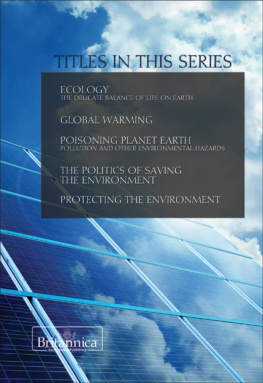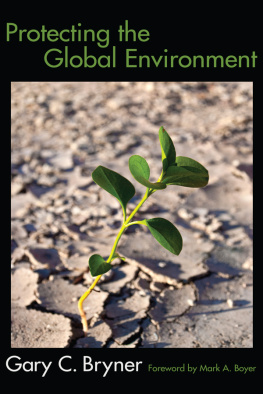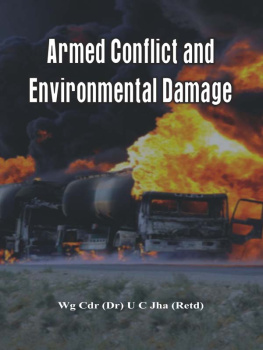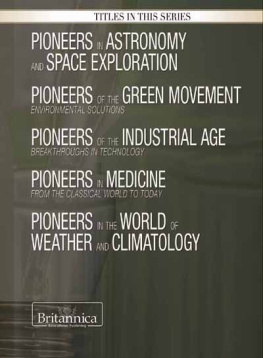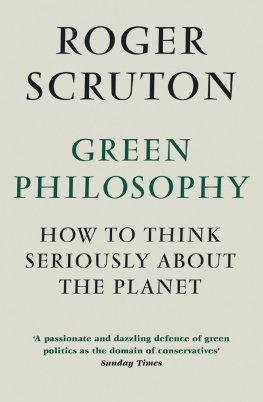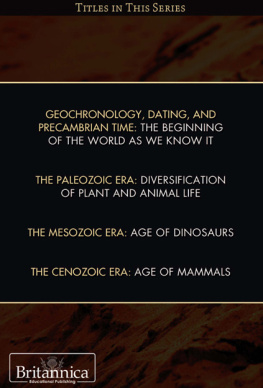THE POLITICS OF SAVING THE ENVIRONMENT
THE ENVIRONMENT: OURS TO SAVE
THE POLITICS OF SAVING THE ENVIRONMENT
EDITED BY MICHAEL ANDERSON

Published in 2012 by Britannica Educational Publishing
(a trademark of Encyclopdia Britannica, Inc.)
in association with Rosen Educational Services, LLC
29 East 21st Street, New York, NY 10010.
Copyright 2012 Encyclopdia Britannica, Inc. Britannica, Encyclopdia Britannica, and the
Thistle logo are registered trademarks of Encyclopdia Britannica, Inc. All rights reserved.
Rosen Educational Services materials copyright 2012 Rosen Educational Services, LLC.
All rights reserved.
Distributed exclusively by Rosen Educational Services.
For a listing of additional Britannica Educational Publishing titles, call toll free (800) 237-9932.
First Edition
Britannica Educational Publishing
Michael I. Levy: Executive Editor, Encyclopdia Britannica
J.E. Luebering: Director, Core Reference Group, Encyclopdia Britannica
Adam Augustyn: Assistant Manager, Encyclopdia Britannica
Anthony L. Green: Editor, Comptons by Britannica
Michael Anderson: Senior Editor, Comptons by Britannica
Sherman Hollar: Associate Editor, Comptons by Britannica
Marilyn L. Barton: Senior Coordinator, Production Control
Steven Bosco: Director, Editorial Technologies
Lisa S. Braucher: Senior Producer and Data Editor
Yvette Charboneau: Senior Copy Editor
Kathy Nakamura: Manager, Media Acquisition
Rosen Educational Services
Heather M. Moore Niver: Editor
Nelson S: Art Director
Cindy Reiman: Photography Manager
Karen Huang: Photo Research
Matthew Cauli: Designer, Cover Design
Introduction by Rick Adair and Heather M. Moore Niver
Library of Congress Cataloging-in-Publication Data
The politics of saving the environment / edited by Michael Anderson.
p. cm.(The environment: ours to save)
In association with Britannica Educational Publishing, Rosen Educational Services.
Includes bibliographical references and index.
ISBN 978-1-61530-554-4 (eBook)
1. Environmentalism--Juvenile literature. 2. Environmentalism--Political aspects--Juvenile literature.
3. Environmental policy--Juvenile literature. 4. Environmentalism--United States--Juvenile literature.
5. Environmentalism--Political aspects--United States--Juvenile literature. I. Anderson,
Michael (Michael J.), 1972
GE195.5.P65 2012
337.72dc22
2010052214
On the cover: (front inset) Activists show their support of the Kyoto Protocol at a protest during the
2010 United Nations Climate Change Conference in Cancun, Mexico. LatinContent/Getty Images
Front cover background, back cover, page : Solar panels. Shutterstock.com
Interior backgroundShutterstock.com
CONTENTS






INTRODUCTION

M ounting evidence suggests that human activities are warming Earth at an alarming rate. Global warming could alter social and economic fabrics around the world as its environmental effects play out. Global warming is among the top concerns of the environmental movement today. However, such an enormous problem is more than individuals can solve. In the end the solution lies with governments, which can change policies and mandate behaviors with a pen stroke. This volume explores the intersection of environmentalism and politics. It introduces the various schools of environmentalism as well as the field of environmental law, which provides a means for carrying out real environmental change. The book also offers an overview of a key factor of the environmental movementthe protection of endangered species.
The modern environmental movement developed in the late 19th century. Early environmental organizations were concerned mainly with nature conservation, wildlife protection, and limiting the pollution that arose from industrial development. The movement included diverse schools of thought. For example, during the early 1900s, debates raged among conservationists over building a dam on Yosemite National Parks Tuolumne River to provide San Francisco with water. Preservationist members of the conservation movement, advocating the preservation of nature for its own sake, opposed the dam on principle. Utilitarian members of the movement, advocating the wise use of natural resources, supported the project. The preservationists lost; the dam was completed in 1923. However, the debate inspired preservationists to campaign for national park protection, which led to the creation of the National Park Service.

Plitvice Lakes National Park, Croatia. Shutterstock.com
The conservation movement nudged government into the role of natures steward. In addition to creating the National Park Service, in the late 1800s and early 1900s the federal government established the national forest system and the Forest Service, introduced natural resource management and large-scale irrigation projects, and established a national wildlife refuge system. Theodore Roosevelt, president of the United States from 1901 to 1909, made conservation a cornerstone of his administration.
A population surge following World War II put pressure on undeveloped areas and thus heightened awareness of the strains on nature and raised concerns about air and water pollution, radiation, and pesticide poisoning. Biologist Rachel Carsons best-selling book Silent Spring (1962) created worldwide awareness of the dangers of environmental pollution, especially pesticide use. The environmental movements influence expanded into courtrooms in 1965 when the conservation group Scenic Hudson Preservation Conference successfully challenged New Yorks utility company, Consolidated Edison, over its plans to build a power plant near the Hudson River. Politicians quickly caught on, and environmentalism became a vital campaign issue in the United States in the late 1960s. In other countries environmentalists made significant political progress beginning in the 1970s and 1980s. Green party candidates won national offices in Europe as well as in Australia, New Zealand, Mexico, and Brazil, among other countries.
Endangered species protection is a critical element of environmentalism. Forest destruction, wetland drainage, pollution, pesticides, and other dangers have threatened the survival of plant and animal species worldwide. Elephants are just one high-profile example. They have been reduced to critically low numbers because of uncontrolled killing for their tusks. The International Union for Conservation of Nature (IUCN), the largest conservation organization in the world, publishes information on endangered species worldwide in the IUCN Red List of Threatened Species.
Next page
